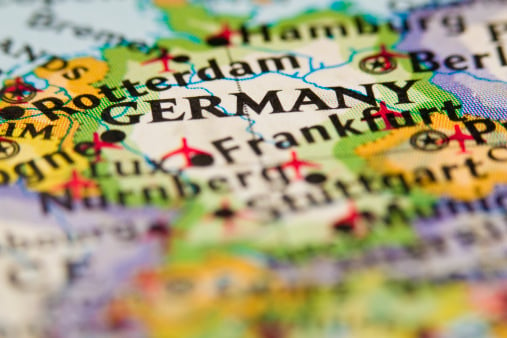
Source: Thinkstock
Research firm IHS Inc. (NYSE: IHS) sums it up this way:
Energy prices are a key component of Germany’s competitiveness. Rising electricity prices in Germany—and strikingly lower energy prices in North America—are making German products less competitive and forcing firms to relocate to other countries, a problem known as “investment leakage.” In a highly integrated and specialized economy such as Germany’s, investment leakage leads to the disruption of supply chains and the movement of companies out of Germany. Owing to the nature of Germany’s economy, high energy costs flow from energy-intensive industries, mostly at the beginning of industrial value chains, to other parts of the manufacturing sector, dominated by the German Mittlestand [small and medium businesses], and to the broader economy.
The research firm put together two scenarios for the cost of energy. One is a high-price scenario that includes more rapid development of renewables and the elimination of exemptions from electricity surcharges and discounts that have so far helped German industry avoid the rising costs of renewable energy. The second, competitive energy scenario assumes a slower pace of development of renewables and a continuation of the current industrial exemptions.
German GDP in 2030 would be 6.2% higher under the competitive scenario and personal income would be 6.3% higher.
The IHS research reckons that high energy prices will cost the German economy 40,000 jobs in the chemicals sector by 2030 under its high-price scenario. Machinery and motor vehicle manufacturing would lose 85,000 and 87,000 jobs, respectively, in the same scenario.
Germany’s energy policy costs totaled €14 billion in 2012 compared with less than half that amount (€6.2 billion) in the U.S. both France and the U.K. absorbed energy policy costs of about €2 billion each in 2012. U.S. costs are not direct costs paid by industry, but opportunity costs in the form of foregone income for tax breaks or one-time payments. Germany’s cost will rise as with electricity prices. IHS estimates that direct net costs will rise to more than €19 billion in 2013.
Sponsored: Want to Retire Early? Here’s a Great First Step
Want retirement to come a few years earlier than you’d planned? Or are you ready to retire now, but want an extra set of eyes on your finances?
Now you can speak with up to 3 financial experts in your area for FREE. By simply clicking here you can begin to match with financial professionals who can help you build your plan to retire early. And the best part? The first conversation with them is free.
Click here to match with up to 3 financial pros who would be excited to help you make financial decisions.
Thank you for reading! Have some feedback for us?
Contact the 24/7 Wall St. editorial team.


